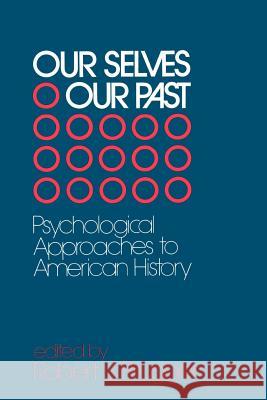Our Selves/Our Past: Psychological Approaches to American History » książka
Our Selves/Our Past: Psychological Approaches to American History
ISBN-13: 9780801823824 / Angielski / Miękka / 1981 / 432 str.
More concerned than ever with questions of theory and method in their work, contemporary historians find themselves turning to other disciplines for the ideas that help them piece together the puzzle of the past. Among these interdisciplinary approaches, perhaps the use of psychology in history, or "psychohistory," has produced both the most impressive and controversial results.In the introduction to Our Selves/Our Past, Robert J. Brugger reviews the development of psychohistory, surveys its champions and critics, and offers his own case for this oft-misunderstood field. Where psychohistory means the logical and judicious use of accepted psychological theory, Brugger argues, it sharpens the historian's sensibility and leads to new subjects of study. Psychologically informed history not only makes for fascinating reading but also encourages the critical use of sources and awareness of complexity that are essential to historical understanding. Our Selves/Our Past is the first collection of psychohistorical literature to deal exclusively with United States history. Its essays examine topics in the American experience ranging from vengeful accusations of witchcraft in seventeenth-century Salem to the psychologically warping circumstances of the My Lai massacre. Selections include nonbiographical studies: Edwin G. Burrows and Michael Wallace on the psychology of the American Revolution; Stanley M. Elkins on the effects of slavery on personality; Carroll Smith-Rosenberg on nineteenth-century sex roles; and Christopher Lasch on narcissism in current American culture. Other articles discuss notable American personalities--Jonathan Edwards, Thomas Jefferson, Abraham Lincoln, Theodore Roosevelt, Eleanor Roosevelt, and Richard Nixon--in their historical setting.Brugger carefully balances classic problems, new approaches, and thoughtful commentary. More than a sampler of the best in psychohistory, "Our Selves/Our Past" seeks to explore











